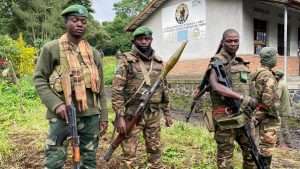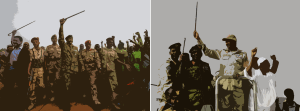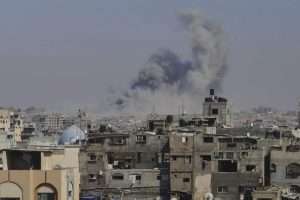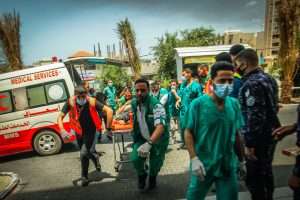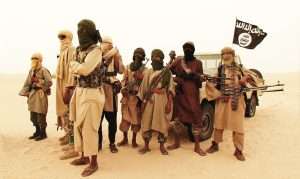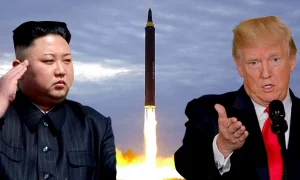Israeli forces stay in southern Lebanon, defying ceasefire deadline

Israeli forces have remained in five locations along southern Lebanon’s border, despite the expiration of the deadline for their withdrawal.
This move is deemed by the Lebanese government as a violation of the ceasefire agreement, the BBC reported on February 18th.
The ceasefire, which was brokered by the US and France, aimed to end 13 months of conflict between Israel and Hezbollah. It required Israeli troops to withdraw from southern Lebanon, while Hezbollah fighters and weapons were to be removed, with Lebanese soldiers being deployed in the area.
However, Israeli authorities announced that they would continue occupying five “strategic” hilltops until the Lebanese army fully implemented its part of the agreement. But Lebanon has insisted on Israel’s complete withdrawal, calling any continued presence an “occupation.”
Israeli Foreign Minister Gideon Saar defended the IDF’s actions, asserting the continued presence is “necessary for our security.” He said: “The IDF’s enforcement activities against Hezbollah will continue at full strength. We will not allow a return to the reality of 7 October [2023].”
Lebanese soldiers entered areas vacated by Israeli forces, clearing roadblocks and checking for unexploded ordnance. Residents returned to their homes in southern Lebanon.
The ceasefire has seen substantial loss of life. Lebanese authorities reported over 3,960 fatalities, with many of them being civilians, and one million displaced people. In Israel, the conflict claimed the lives of 80 soldiers and 47 civilians, with around 60,000 citizens displaced from the north of Israel. The UN says most of the displaced people in Lebanon have returned home, while a smaller proportion of people displaced in Israel have done the same.
The Israeli military said on January 30th that it had intercepted a surveillance drone launched towards Israeli airspace by Hezbollah in Lebanon, Asharq Al-Awsat reported.
The attack came after Israel launched a drone strike on January 28th, according to the Times of Israel. The Lebanese Health Ministry said that five were injured in the attack, on what Israel said was a Hezbollah weapons convoy.
BBC, Asharq Al-Awsat
Want to chase the pulse of North Africa?
Subscribe to receive our FREE weekly PDF magazine




